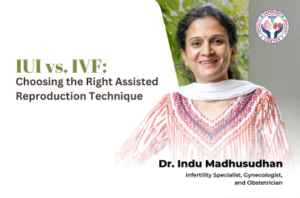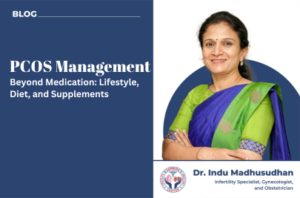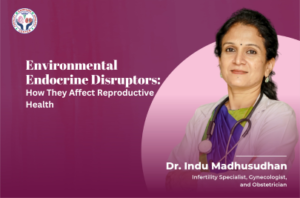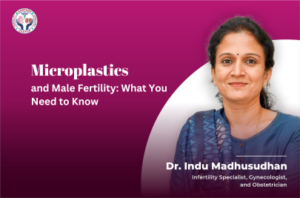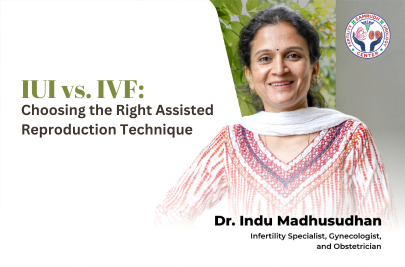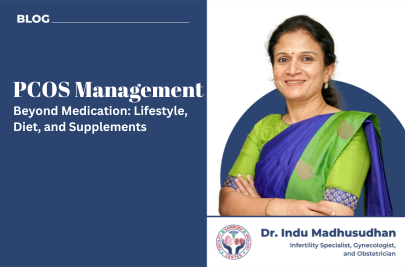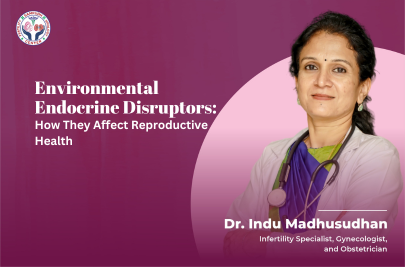Introduction:
Whether you’re actively trying to conceive or simply interested in preserving your overall reproductive health, understanding the factors that cause poor egg quality is a crucial step. In this blog, we will explore the major causes of poor egg quality in women and potential treatments to navigate fertility challenges. But first, let us understand the signs of poor egg quality.
Untreated Mental Health During Pregnancy and its impact on pregnancy course
When you feel happy and calm, it allows your baby to develop in a happy, calm environment with a satisfying outcome. However, emotions like stress and anxiety can increase particular hormones in your body, which can affect your baby’s developing body and brain. Additionally, pregnant people with anxiety and depression are more likely to smoke, drink alcohol, or use other substances during pregnancy. This will further affect the baby development during pregnancy such as foetal growth restriction , high blood pressure in pregnancy.
Numerous women’s reports indicate that they are emotionally secure, while some may experience mental health problems. Hormonal changes, bodily pain, and the mental adjustment of becoming a parent can all lead to common diseases including stress, worry, and melancholy.
What are the Signs Of Poor Egg Quality?
A few common signs of poor egg quality involve difficulties in conceiving, experiencing recurrent miscarriages, facing challenges in IVF cycles, poor embryo quality, finding abnormal chromosomes, hormonal imbalances, low follicle counts, and low Anti Mullerian Hormone (AMH) levels.
Other potential signs include:
- Difficulty getting pregnant, especially for women over 35.
- Recurrent miscarriages, particularly in the early stages of pregnancy.
- Irregular menstrual cycles.
- Late or absent periods, shorter cycles, heavy period flow.
Why Is It Important to Check Egg Quality and Egg Quantity for Pregnancy?
Every month, a woman’s ovaries release one egg during ovulation. The quality of this egg, which includes its genetic makeup, structure, and composition, plays a crucial role in determining fertility outcomes. Knowing the quality of eggs is important because it directly affects the chances of getting pregnant. High-quality eggs are more likely to result in a healthy pregnancy, while lower-quality eggs may lead to challenges in conceiving or an increased risk of complications during pregnancy. Understanding egg quality helps individuals and healthcare professionals make informed decisions about fertility treatments and family planning.
An Important Medical Note:
When a girl is born, her ovaries have about 2 million eggs. Unlike some other cells in the body, women can’t produce new eggs, and each month, there is a gradual decrease in their total number.
Here is a breakdown:
- By the time a girl reaches puberty, only about 25% (around 300,000) of these eggs remain.
- During adolescence, the number further decreases to about 100,000-150,000.
- Every month, approximately 1000 eggs are lost, despite monthly ovulation,
- When a woman reaches the age of 40, there is a 40% decrease in the number of healthy eggs she has, impacting fertility.
While age is a dominant factor, there are several reasons and factors for poor egg quality. Let’s read about them in the next section:
5 Causes of Poor Egg Quality in Women You Should Know
Reason 1: Age and Egg Quality
Understanding the impact of age on egg quality is the first step in proactively managing reproductive health.
- As women age, the quality of their eggs undergoes a natural decline, impacting fertility. (especially after the age of 35)
- As women approach their 30s and 40s, the risk of chromosomal abnormalities, such as Down syndrome, increases.
- The likelihood of miscarriage increases with advancing maternal age.
You May also see You Tube Vedio : How Can I Effectively Track Ovulation to Successfully Conceive?
Reason 2: Lifestyle Factors and Egg Quality
Our lifestyle choices and habits shape our overall health- and reproductive health is no exception.
- Egg quality can fluctuate monthly due to stress, poor or unhealthy diet, and overall health.
Smoking, drinking alcohol, obesity, and exposure to drugs affect fertility and egg quality
Reason 3: Environmental Factors and Egg Quality
In the modern world, exposure to various environmental factors has become inevitable. While many aspects of our environment contribute to our well-being, certain environmental toxins can significantly affect the quality of a woman’s eggs:
- Heavy metals, pesticides, and air pollutants
- Plasticizers found in certain plastics
- Endocrine-disrupting chemicals (EDCs) interfere with the normal function of your body’s endocrine system and hormonal balance, potentially affecting egg quality. (EDCs are substances in the environment (air, soil, or water supply), food sources, personal care products, and manufactured products)
Reason 4: Hormonal Imbalances
Chemical Disturbances or hormonal imbalances can affect egg development, quality, and overall fertility.
- Polycystic Ovary Syndrome (PCOS), a common hormonal disorder, can lead to irregular menstrual cycles and affect egg quality.
- Thyroid Disorders that lead to thyroid imbalances (both hypo- and hyperthyroidism) can influence reproductive health.
- Irregular menstrual cycles affect egg maturation and lead to potential fertility challenges.
- Long-term use of a few hormonal treatments and birth control may affect reproductive health.
Reason 5: Specific Medical Conditions
Certain medical conditions and treatments can have profound effects on a woman’s reproductive health, including the quality and quantity of her eggs. A few medical problems and treatments include:
- Autoimmune disorders
- Genetic disorders
- Endometriosis
- Chocolate cysts associated with endometriosis
- Cancer treatments like radiation therapy, chemotherapy
- Pelvic infections
- Ovarian surgery
- Tubal disease
How Can You Test the Egg Quality for Fertility?
There isn’t a specific test just for checking egg quality. However, pregnancy outcomes, counting follicles, and imaging tests can provide information on egg quality.
A few other diagnostic tests include:
- Genetic screening before IVF implantation (PGS) can identify chromosomal anomalies in embryos, hinting at poor egg quality.
- AMH Test (Anti-Müllerian Hormone)
- basal FSH Test (Follicle-Stimulating Hormone)
- Estradiol Testing
- Antral Follicle Count (AFC)
- Ovarian reserve testing
How Can You Improve Egg Quality?
Improving egg quality is a multifaceted approach that involves lifestyle changes, medical treatments, and proactive reproductive health management.
Here are a few things you can do to improve your egg quality:
- Consume a balanced diet rich in nutrients, including antioxidants, vitamins, and minerals.
- Engage in moderate and regular physical activity to promote overall well-being.
- Manage stress through practices like meditation or yoga.
- Take supplements like Coenzyme Q10 (CoQ10), and Dehydroepiandrosterone (DHEA) to support egg health.
- Reduce exposure to harmful substances in personal care products, household cleaners, and pesticides.
- Quit smoking, as it can adversely affect fertility and egg quality.
- Limit alcohol intake and reduce caffeine consumption.
- Achieve and maintain a healthy body weight.
A few medical fertility treatments include:
- In Vitro Fertilization (IVF) with Preimplantation Genetic Testing (PGT)
- Hormone Therapies
- Egg Donation
- For individuals undergoing medical treatments that may impact fertility, consider fertility preservation methods before starting treatments.
It’s important to note that individual responses may vary, and consultation with healthcare professionals, including fertility specialists, is crucial to tailor these strategies based on specific circumstances.
Important Note:
For those seeking pregnancy at a later stage, consulting with a fertility specialist can provide valuable insights and potential interventions.
Your Path to Egg-cellent Reproductive Health
Besides age, several factors influence poor egg quality. Issues like endometriosis, ovarian cysts, polycystic ovary syndrome (PCOS), thyroid problems, diabetes, high stress, immune disorders, obesity, and habits such as smoking, alcohol, and caffeine intake can compromise egg quality.
As we conclude this comprehensive exploration of factors influencing egg quality, you must take proactive steps toward enhancing reproductive health.Remember that each individual’s journey is unique. You should consult with healthcare professionals who can provide personalized insights and guidance.If you’re ready to take the next step in your fertility journey, Consult our doctors at Samrudh Fertility & Urology, the best fertility hospital in Bangalore, and embark on your path to reproductive well-being.
Read Similar Topics :


